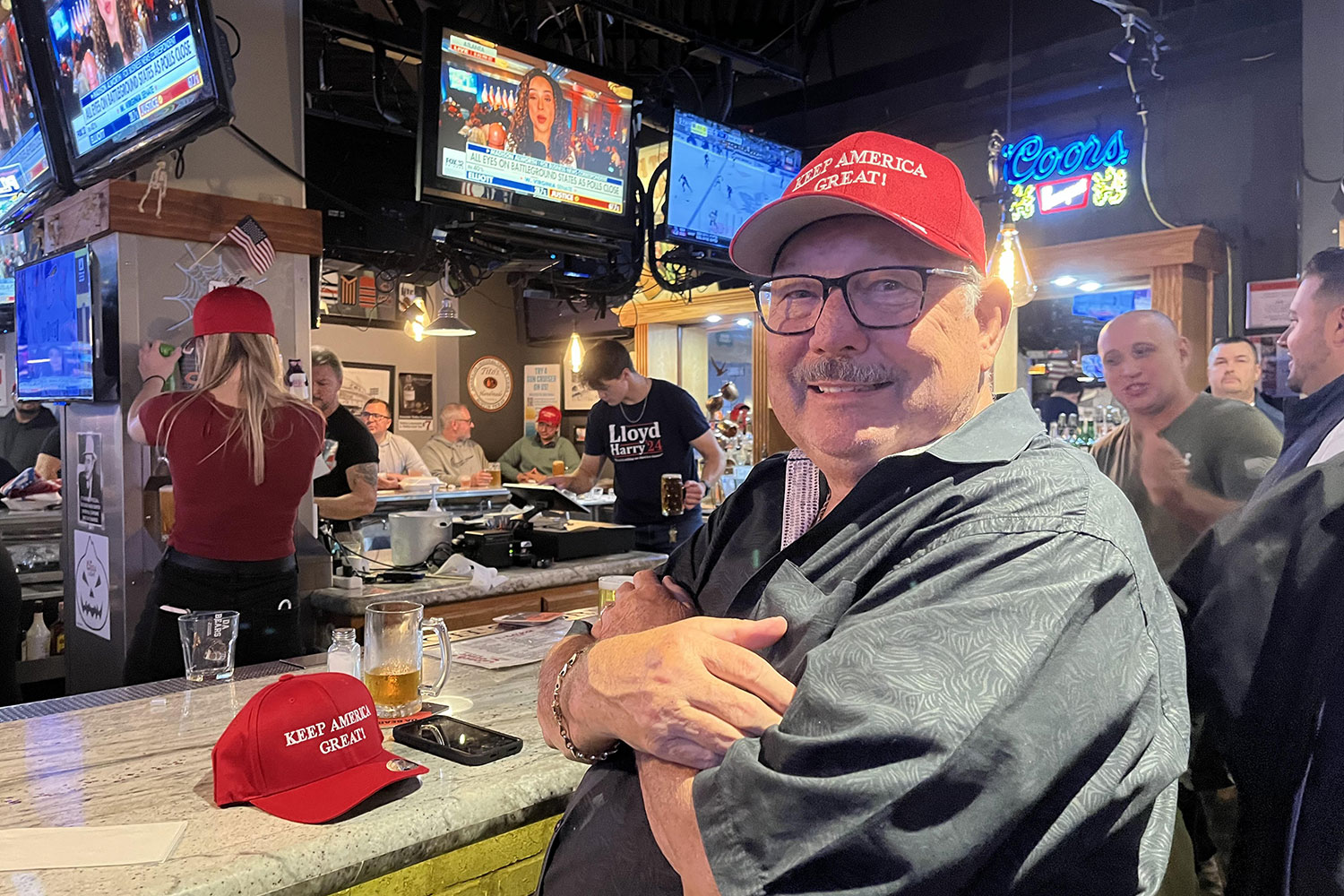Even Chicago, the bluest of blue cities, is getting Trumpier.
In the last three elections, Donald Trump has steadily increased his share of the vote here, from 12.4 percent in 2016, to 15.8 percent in 2020, to 21.4 percent last week. In Illinois as a whole, Trump’s percentage jumped from 40.5 percent in 2020 to 44.3 percent this year.
Chicago, and Illinois, were part of a nationwide trend in which Democrats failed to turn out as many voters for Kamala Harris as they did for Joe Biden. In 2020, Biden won 944,735 votes in Chicago. This year, Harris won only 702,175. The 41st Ward, on the Far Northwest Side, voted for Trump outright, the first time a Republican has carried a Chicago ward since George H.W. Bush in 1992. Trump also won in Mount Greenwood, which has a large population of police officers and firefighters, and among the Orthodox Jewish population in West Rogers Park. This map offers a comparison of 2020 vs. 2024 citywide.
“Voters in liberal strongholds across the country, from city centers to suburban stretches, failed to show up to vote for Vice President Kamala Harris at the levels they had for Joseph R. Biden Jr. four years earlier,” The New York Times reported. “The trend was especially striking in Cook County, Ill. Overall turnout there was down by 20 percent. Mr. Trump collected about his same 2020 total vote, but Ms. Harris’s total was more than 417,000 votes behind Mr. Biden.”
Statewide, Trump collected fewer votes than he did in 2020, but the Democratic vote fell from 3.4 million to 2.8 million. That helped Trump win the nationwide popular vote, the first Republican to do so since George W. Bush in 2004. The Democrats lacked the intensity of 2020, when they were desperate to evict Trump from the White House after his disastrous handling of COVID-19. Once again, the out party had more energy.
“Illinois is a blue state that acted like a blue state, but it was not nearly as blue as four years ago,” said John Jackson of the Paul Simon Center for Public Policy at Southern Illinois University. “I think the general explanations nationally would hold for Illinois. We’re one of the most representative states. Turnout for Democrats went down badly. I think for whatever reason the Democratic electorate was not excited about electing a woman with minority credentials. I don’t think the Democrats will nominate a woman again any time soon. The deck will be stacked against a woman candidate.”
Chuck Hernandez, chairman of the Chicago Republican Party, sees the election results as evidence that Republicanism is gaining strength in the city. The party held an Election Night watch party at Tavern on the Point in the 41st Ward, which drew a crowd of 100.
“I believe the economy was number one, front and center,” Hernandez said. “We had prosperity in the years 2017, 2018, 2019. People want the American Dream, and they didn’t see it possible under Biden/Harris.”
Hernandez believes that voters, including Democrats, were turned off by the “hot swap” of Harris for Biden.
“It bordered on illegitimacy with not having a primary,” he said. “They tried to package it as something new. The American people saw her as a continuation of Biden, not a viable option.”
The Latino vote swung significantly toward Trump, both nationwide and citywide. Nationally, Trump won the votes of Latino men, who may have been attracted to his “macho image,” Jackson said. In Chicago, Trump’s vote in the Little Village neighborhood increased from 13 percent to 32 percent. Trump also performed well in the 13th and 23rd wards, which have large Latino populations.
“Speaking as a Latino, we embrace America as our country,” Hernandez said. “The hardworking values are more aligned with the Republican Party.”
However, political strategist Jorge Neri doesn’t see this year’s results as signs of growing Republicanism among Latino voters — or among Chicagoans. Overall, Harris won Latinos nationwide, “especially among women in battleground states.”
“I think it’s particular to Trump,” he said. “Trump is the outlier. I don’t think next time around, they’re going to do as well.”
Trump is a singular figure in American politics, with the ability to motivate voters who are normally indifferent to elections. This year was the high water mark of his success. In four years, with a more conventional candidate on the ballot, there’s a good chance the Republicans will end up back at their usual 12 percent in Chicago.



